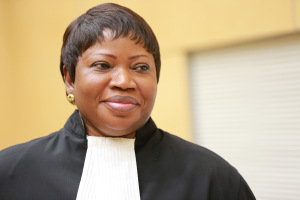
The pre-trial chamber, so far as we can tell, simply ignored the request, but it looks as if rather than forcing South Africa to kneel, Bensouda’s attempted power-play may have made the nation more, not less, defiant.
From Business Day Live:
The government will argue before the Supreme Court of Appeal next month that, as a serving head of state, Sudanese President Omar al-Bashir could not be arrested on an order by a South African court…
In heads of argument filed in court on Friday, the government’s counsel, Jeremy Gauntlett SC, argued that personal immunity of a head of state — immunity in all respects during his term of office — is a fundamental principle of international customary law and is also provided for in SA’s Diplomatic Immunities and Privileges Act.
When it came to ordering the arrest of the Sudanese president, nothing in the Rome Statute, which established the ICC, or any South African law had altered that, argued Mr Gauntlett. The immunity operated even in the context of international crimes.
The South African law that domesticated the Rome Statute did not repudiate the “important principle of international law: the inviolability of sitting heads of state”.
SA was under a duty to respect Mr Bashir’s immunity while he served as a head of state, he said.
With the South African High Court agree? And, if it does, what will this mean for the future of the ICC?
We have some idea come mid-February.
(Photo via official ICC Flick’r)
